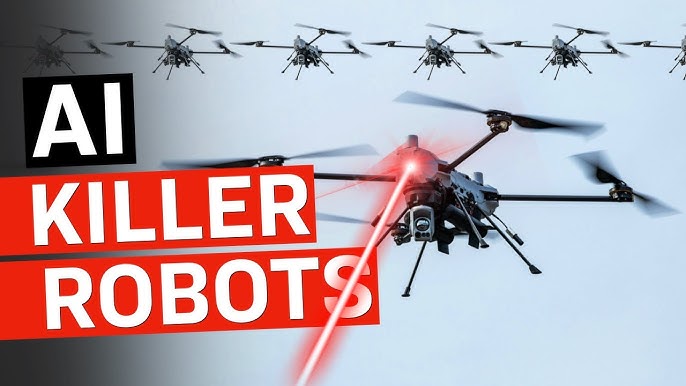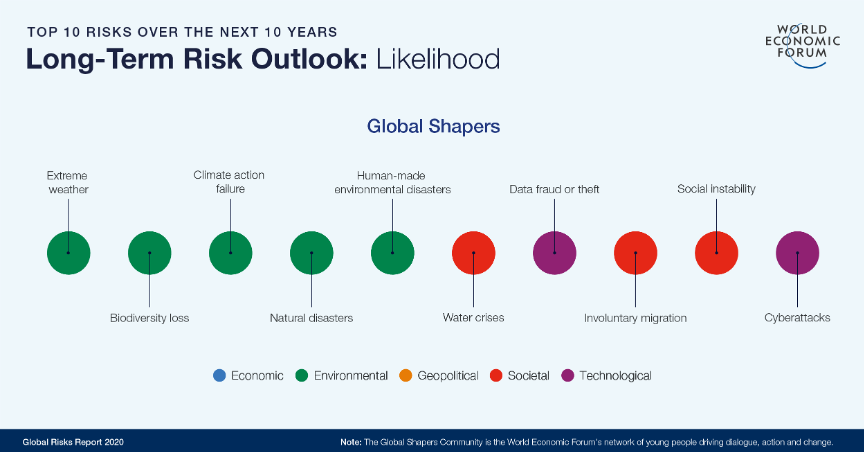Is AI Like a Weapon?
When Gates compared AI to “nuclear weapons and nuclear energy,” he was pointing out the dual nature of this powerful technology. Just like nuclear energy can be used to generate clean electricity or devastating weapons of mass destruction, AI can be a force for good or for harm. This comparison underscores the importance of responsible AI development and regulation to ensure that it is used for the benefit of humanity.

19 March 2019: Microsoft co-founder and philanthropist Bill Gates issued a grave warning, comparing advanced artificial intelligence to nuclear weapons — and arguing that the United States is losing its edge in the global AI research race.
“The US was in this totally unique position for most of these breakthrough technologies,” he said. “Now the US is still very much the leader, but not [in the] same dominant, dominant way.”
President Donald Trump wasted no time and resumed his duties immediately upon returning to the White House. On his first complete day back, he made a significant announcement regarding a $500 billion investment in an AI infrastructure initiative named Stargate.
PERIL AND PROMISE
At the same time, Gates expressed hope that the tech could be used to improve health and medicine around the world. But he also warned that the United States’ grip on AI research is starting to slip compared to other countries.
“The US was in this totally unique position for most of these breakthrough technologies,” he said. “Now the US is still very much the leader, but not [in the] same dominant, dominant way.”
AI OVERLORD
In the past, Gates has also expressed concern about how humanity might grapple with an AI super intelligence – as CNET pointed out.
“I am in the camp that is concerned about super intelligence,” Gates said in 2015. “First, the machines will do a lot of jobs for us and not be super intelligent. That should be positive if we manage it well. A few decades after that, though, the intelligence is strong enough to be a concern.”

Bill Gates, alongside other tech luminaries like Elon Musk and Stephen Hawking, has expressed concern regarding the advancements of artificial intelligence (AI) and its potential dangerous implications. During a Reddit AMA, Gates warned about the rise of ‘super intelligence,’ which he believes could initially benefit society by taking over various jobs but may later pose significant risks if not properly managed. He aligns with Musk’s view that AI development could be akin to ‘summoning the demon,’ emphasizing the need for safeguards to prevent humanity from losing control. The ongoing evolution of AI technologies, illustrated by applications such as Apple’s Siri and IBM’s Watson, raises alarms reflected in popular culture’s portrayal of machines turning against humans. Despite the potential hazards, Gates continues to offers a more optimistic perspective for future careers in programming, suggesting that foundational programming skills will remain valuable and enjoyable.
Do our governments, doctors, and others know about future jobs? According to Bill Gates, AI will be taking over their jobs. So, why should we fully adopt AI or digital in our lives? It should be a choice.
Bill Gates has a ‘scary’ warning on AI future: We may actually don’t need human

In a recent interview with Emily Chang, Bill Gates shared his thoughts on the future of Artificial Intelligence (AI) and the potential risks it presents to society.
Question: How confident are you that AI’s promise will outweigh the risks?
Bill Gates’ Response: “I’m not confident. But, you know, that’s what we need to focus on—that’s why I was surprised AI wasn’t really a major issue in the last election. It definitely needs to be shaped carefully.
Emily Chang: Hearing you say you’re not confident is kind of scary.
Bill Gates: People should really think through how AI is going to reshape our lives. It is a profound change agent.” And I don’t think only the people who understand the technology should have a say because there are many choices about how it gets used. It will change education; it will change the job market. I believe we can guide that in the right direction, but it will be, just like nuclear energy and nuclear weapons it’ll uh uh challenge us.
The key takeaway from Gates’ remarks is the urgent need for stakeholders to come together and carefully consider the implications of AI’s widespread adoption. It is not just a matter for technologists to navigate; policymakers, educators, and the general public must also have a say in how AI is developed and used.
According to the WEF Agenda: Bill Gates – “Within 10 years, AI will replace many doctors and teachers—humans won’t be needed for most things“

Ref: https://www.cnbc.com/2025/03/26/bill-gates-on-ai-humans-wont-be-needed-for-most-things.html
Bill Gates on the Security Risks of AI

Bill Gates has a long-standing interest in technology, and his perspective on AI is shaped by his experience with the personal computer revolution and the internet. He views the development of AI as a pivotal moment, comparable to the creation of the microprocessor, the personal computer, the internet, and the mobile phone.
The “Age of AI” and its Impact
Implementation Timeline
Gates believes that AI will fundamentally change how people work, learn, travel, receive healthcare, and communicate. He sees the potential for AI to address global inequities, particularly in education and healthcare, and is actively involved in philanthropic efforts related to AI through the Bill & Melinda Gates Foundation.
- Early 2010s: Gates recognized the potential of AI. In 2017, he pointed to the “profound milestone” of Google’s DeepMind AI lab creating a computer program that could defeat humans at the board game Go.
- 2016: Gates began meeting with the team from OpenAI.
- Mid-2022: Gates challenged OpenAI to train an AI to pass an Advanced Placement biology exam. The AI successfully completed the exam in a few months.
- 2023: Gates stated that if he were to start a new business, he would launch an “AI-centric” startup.
Bill Gates began to actively implement and invest in AI in the mid-2010s, with a significant acceleration in the early 2020s. He has been involved in AI development through investments in companies like OpenAI and through his philanthropic work with the Gates Foundation.
Ref:
- The Age of AI has begun[ https://www.linkedin.com/pulse/age-ai-has-begun-bill-gates ]
- Bill Gates on AI: Humans won’t be needed for most things. [https://www.cnbc.com/2025/03/26/bill-gates-on-ai-humans-wont-be-needed-for-most-things.html]
Disadvantages of AI Already in Use in India
Job Displacement
AI, while promising, presents several disadvantages in its current implementation in India. These challenges span various domains, from economic and social impacts to ethical and regulatory concerns.
Ethical and Privacy Issues
One of the most significant concerns is the potential for job displacement due to automation. As AI automates tasks, particularly in sectors like agriculture and manufacturing, there is a risk of widespread unemployment. This could lead to migration from rural areas and exacerbate existing urban challenges. The automation of routine jobs, especially in sectors like manufacturing, BPOs, and services, could lead to unemployment.
Lack of Robust Regulatory Framework
AI systems rely on vast amounts of data, raising significant data privacy concerns. The potential for data breaches and misuse of personal information is a major drawback. AI-powered tools can extract sensitive information without proper consent, violating individuals’ privacy rights and potentially leading to harm. Furthermore, AI systems can perpetuate biases present in historical data, leading to discriminatory outcomes in areas like hiring and loan approvals.
Dependence on Foreign Technology
India’s regulatory framework for AI is still evolving, and the absence of clear guidelines on AI ethics, bias, and accountability can deter innovation. The lack of a comprehensive AI regulatory framework increases the risks of AI misuse and potential harm to citizens. The Digital Personal Data Protection Act (DPDPA), 2023, while a step forward, may not fully address AI-specific challenges, especially concerning the processing of anonymized data that could still infer personal information.
AI startups often struggle to secure funding, which can hinder innovation. The high initial investment and long gestation periods make investors cautious, potentially preventing innovative ideas from reaching the market.
Economic and Financial Constraints
India’s reliance on foreign cloud infrastructure raises concerns about data privacy, security, and sovereignty. The dependence on foreign AI technologies makes India susceptible to external political and economic pressures. Even if data resides on Indian soil, the policies of parent companies often dictate how the data is managed, limiting India’s AI sovereignty.
Power and Water Consumption
AI and data centers are energy and water-intensive, which poses challenges for India’s existing infrastructure. The energy consumption of large-scale data centers is a significant concern, and India is already dealing with a crumbling power infrastructure.
Ref
- The Benefits and Drawbacks of Implementing AI in India [https://aithor.com/essay-examples/the-benefits-and-drawbacks-of-implementing-ai-in-india]
- The Growing Impact of Artificial Intelligence in India: Opportunities and Challenges [https://www.ahlawatassociates.com/blog/the-growing-impact-of-artificial-intelligence-in-india-opportunities-and-challenges ]
- Artificial Intelligence in India: Prospects, Challenges, and the Road Ahead [ https://timesofindia.indiatimes.com/blogs/blackslate-corner/artificial-intelligence-in-india-prospects-challenges-and-the-road-ahead/ ]
- India at the Crossroads: The Risks of Falling Behind in the AI Race and Its Future Repercussions [ https://www.linkedin.com/pulse/india-crossroads-risks-falling-behind-ai-race-its-future-aryan-dadwal-q003f]
- India’s AI ascent – potential and limitations [https://www.linkedin.com/pulse/indias-ai-ascent-potential-limitations-rashmi-bagri-j4nsf ]
Source: futurism, TOI, Youtube-Image, Linkedin-Image, Jagran Josh-Image
Also Read:
